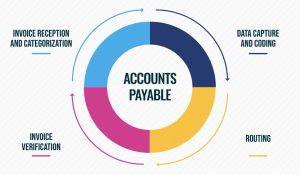Navigating the Labyrinth: Why “Tax News” is a Critical Consulting Service
In today’s rapidly evolving global economy, tax laws are anything but static. For individuals and businesses alike, staying abreast of the latest “Tax News” is not merely a matter of compliance, but a strategic imperative. This is particularly true for the consulting service industry, where expert guidance on tax implications can make or break a client’s financial health and competitive edge.
The Dynamic Tax Landscape for Consultants and Their Clients
The tax environment is a constant churn of new legislation, amended regulations, and shifting interpretations. Recent years, including 2024 and looking ahead to 2025, have seen significant developments globally and regionally. For instance, the Egyptian Tax Authority (ETA) recently published Value-Added Tax (VAT) Guidelines for digital and remote services provided by non-residents, impacting international consulting firms operating in or with clients in Egypt. Similarly, the global tax reform efforts, such as the OECD’s Base Erosion and Profit Shifting (BEPS) project, continue to reshape international taxation, necessitating a fundamental reassessment of business operations beyond just the tax department.
Consultants themselves face specific tax considerations. Income from consulting services is generally taxed at the individual’s or company’s applicable slab rate, with no separate fixed rate. However, understanding deductions, such as those related to home office expenses, business travel, software, and professional services, is crucial for optimizing tax liabilities. The “pass-through deduction” (Section 199A) in the US, allowing a deduction of up to 20% of qualified business income for owners of pass-through entities, remains a significant benefit for many consulting firms, though it’s scheduled to expire after 2025.
Key Tax News Affecting Consulting Services:
- Global Tax Reset & Pillar Two: The ongoing “global tax reset,” driven by initiatives like Pillar Two (global minimum tax rules), demands a proactive approach from multinational consulting firms and their clients. This involves a comprehensive understanding of data and process assessments, impact modeling, and end-to-end compliance.
- Digital Service Taxes & VAT: Jurisdictions worldwide are increasingly targeting digital and remote services for taxation. Consultants providing such services internationally must be aware of evolving VAT and similar indirect tax guidelines in various countries to ensure compliance and avoid penalties.
- Changes to Deductions and Expensing: The temporary allowance of 100% expensing for business property and the limitations on business interest deductions and net operating losses, as seen in the US Tax Cuts and Jobs Act (TCJA), have a direct bearing on consulting firms’ ability to invest and manage their finances. The phasing down of bonus depreciation and the amortization of research and experimentation expenditures also require careful financial planning.
- Income Tax Return Filings and Deadlines: Staying informed about extended deadlines, such as the recent extension for personal Income Tax Return filing in India for the tax year 2024-25, is essential for timely compliance and avoiding penalties.
- Presumptive Taxation Schemes: For individual consultants, schemes like India’s Section 44ADA, allowing 50% of gross income to be declared as profit without maintaining detailed records (with an increased limit to INR 75 lakhs effective April 1, 2024), offer simplified compliance but also require careful consideration of their applicability.
The Indispensable Role of Tax Consulting Services
Given this intricate and ever-changing landscape, consulting services that specialize in “Tax News” and its practical implications are more vital than ever. These services go beyond mere compliance, offering strategic insights that can:
- Minimize Tax Liabilities: By identifying eligible deductions, credits, and optimal business structures, consultants help clients reduce their tax burden.
- Ensure Compliance: Expert guidance ensures businesses and individuals navigate complex tax laws, avoiding penalties and legal issues.
- Optimize Financial Planning: Tax consultants assist in integrating tax strategies into broader business plans, leading to more efficient financial forecasting and resource allocation.
- Manage Risk: Proactive monitoring of regulatory changes and thorough reviews of current tax practices help identify and mitigate potential tax risks.
- Facilitate Global Operations: For firms with international reach, understanding cross-border tax implications, including transfer pricing and international taxation, is critical for seamless operations and expansion.
In conclusion, “Tax News” is not just a bulletin board of updates; it’s a dynamic force shaping the financial future of businesses. Consulting services that translate this news into actionable strategies and ensure robust tax planning are indispensable partners in helping clients thrive in an increasingly complex global economy. Staying informed and seeking expert advice remains the most effective way to navigate the labyrinth of taxation and unlock significant financial advantages.







